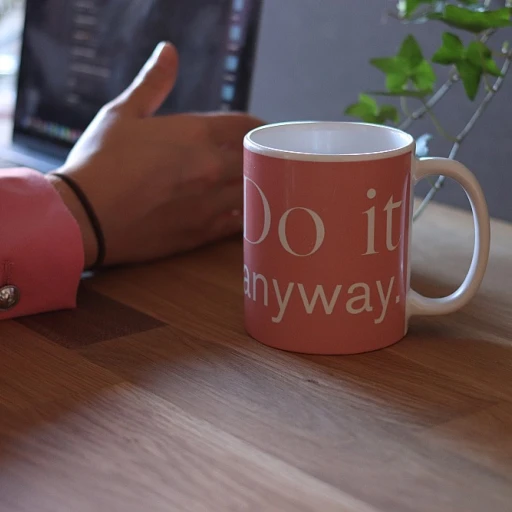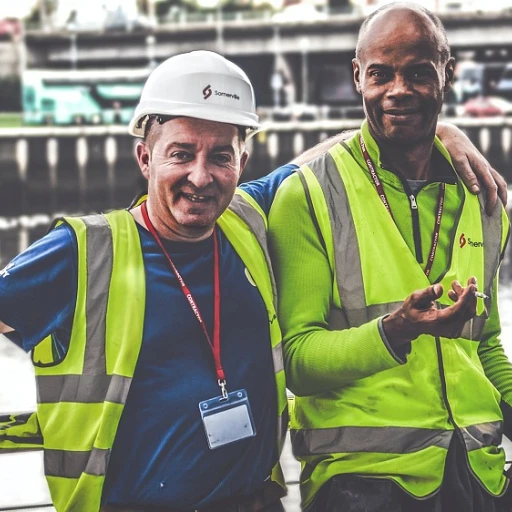
Defining the preliminary interview
What Is a Preliminary Interview in Candidate Sourcing?
In the recruitment process, a preliminary interview—sometimes called a pre screening or initial interview—serves as the first real conversation between a candidate and a company. This step is designed to quickly assess if a job seeker could be a good fit for the position and the company culture before moving forward to more in-depth interviews. The preliminary interview is not about making a final hiring decision. Instead, it’s about screening candidates to see if their skills, experience, and motivations align with what the hiring manager and the company need.
During this early stage, the interviewer—often a recruiter or HR professional—asks screening questions to clarify the candidate’s background, career goals, and interest in the job. The goal is to determine if the candidate meets the basic requirements for the role and if it makes sense to invest more time in a full job interview. This step helps hiring managers save time and focus on candidates who are more likely to succeed in the role.
Preliminary interviews can take different forms, such as phone calls, video calls, or even structured online questionnaires. The process is usually less formal than later stages, but it’s still a critical part of the hiring process. It sets the tone for the candidate’s experience and gives both sides a chance to decide if they want to move forward.
For a deeper understanding of how this fits into modern recruitment, you might want to explore direct sourcing in candidate sourcing and how it relates to the initial screening interview.
- Purpose: Quickly assess candidate fit for the job and company
- Format: Often phone or video, sometimes online forms
- Focus: Screening questions about skills, experience, and motivation
- Outcome: Decide if the candidate should move forward in the interview process
Why preliminary interviews matter in candidate sourcing
Why Early Screening Shapes the Hiring Process
Preliminary interviews are a vital step in the recruitment process, acting as the first real interaction between candidates and the company. This initial interview, often called a pre screening or screening interview, helps hiring managers and recruiters quickly assess if a candidate could be a good fit for the position and the company culture. By asking targeted interview questions, interviewers can evaluate basic qualifications, communication skills, and the candidate’s motivation for the job.
Saving Time and Resources
One of the main reasons preliminary interviews matter is efficiency. With a large volume of applications for every open position, it’s simply not practical to invite every applicant for a full job interview. The preliminary interview acts as a filter, narrowing down the pool to those who meet the essential requirements. This saves time for both hiring managers and candidates, streamlining the hiring process and reducing unnecessary steps.
Improving Quality of Hires
Effective pre screening ensures that only candidates with the right skills and experience move forward. This step helps identify not just technical fit, but also cultural fit, which is increasingly important in today’s workplace. By using common questions focused on both hard and soft skills, interviewers can spot red flags early and avoid costly hiring mistakes.
- Quickly assesses candidate qualifications and interest
- Reduces time spent on unsuitable applicants
- Improves the overall quality of interviews later in the process
- Supports a consistent and fair screening process
Supporting Scalable Recruitment
For organizations with high-volume hiring needs, such as large enterprises, integrating preliminary interviews into the recruitment process is essential. Enterprise RPO solutions often rely on structured pre screening to manage candidate pipelines efficiently. This ensures that only the most promising candidates reach the later stages, making the process scalable and manageable.
Ultimately, the role of the preliminary interview is to act as a gateway, ensuring that every candidate who moves forward is worth the investment of time and resources. This step sets the tone for the rest of the interview process and helps build a strong foundation for successful hiring.
Common formats and questions used
Formats and Approaches Used in Early Screening
Preliminary interviews, sometimes called pre screening or initial interviews, are designed to quickly assess whether candidates are a good fit for the job and company. These interviews are often the first real interaction between the candidate and the hiring manager or recruiter. The format and questions used can vary depending on the role, the company, and the overall recruitment process.
Popular Interview Formats
- Phone Interviews: A common choice for preliminary screening, phone interviews allow interviewers to quickly connect with candidates and evaluate communication skills, motivation, and basic qualifications.
- Video Interviews: With remote work on the rise, video calls (live or recorded) are increasingly used for initial interviews. This format gives a sense of the candidate’s professionalism and comfort with technology.
- Online Questionnaires: Some companies use automated pre screening tools or questionnaires to filter candidates before a live interview. These often include screening questions about experience, skills, and availability.
Common Questions in Preliminary Interviews
Interviewers focus on questions that help them quickly determine if the candidate should move forward in the hiring process. Here are some typical areas covered:
- Motivation: What interests you about this position and our company?
- Relevant Experience: Can you describe your experience with [key skill or responsibility]?
- Availability: When could you start if selected?
- Salary Expectations: What are your compensation requirements?
- Cultural Fit: How do you align with our company values?
- Logistics: Are you willing to relocate or work remotely?
These screening questions are not meant to be exhaustive but help hiring managers quickly identify if a candidate’s skills, experience, and values match the job requirements. The goal is to save time for both sides and ensure only the most suitable candidates move to the next stage of the interview process.
For organizations looking to improve their candidate sourcing and ensure a more inclusive process, exploring how DEI newsletters can transform your candidate sourcing strategy can be a valuable next step.
Key challenges in conducting preliminary interviews
Challenges That Can Impact the Quality of Early Interviews
Preliminary interviews are a vital part of the hiring process, but they come with their own set of challenges. Understanding these obstacles helps interviewers and hiring managers improve their approach and make better decisions about candidates.
- Time constraints: Screening interviews often need to be conducted quickly to keep the recruitment process moving. This can lead to rushed conversations, making it harder to assess a candidate’s true fit for the job and the company culture.
- Lack of standardized interview questions: Without a clear structure or consistent set of screening questions, it’s easy for interviewers to miss important details about a candidate’s skills, experience, or motivation for the position. This inconsistency can affect the fairness and effectiveness of the pre screening process.
- Limited information: At the preliminary stage, interviewers often have only a resume and a basic application to work with. This makes it challenging to dig deeper into what makes a candidate a good fit for the role or the company, especially when assessing soft skills or cultural fit.
- Unconscious bias: Early interviews can be influenced by first impressions or assumptions, which may not reflect a candidate’s actual abilities or potential. This can result in strong candidates being overlooked or the wrong fit moving forward in the hiring process.
- Candidate experience: The initial interview sets the tone for the entire recruitment process. If the preliminary interview feels impersonal or disorganized, candidates may lose interest in the position or the company, impacting the employer brand.
- Volume of applicants: For popular roles, hiring managers and recruiters may face a high volume of candidates. Managing this workload while maintaining quality screening can be overwhelming and lead to missed opportunities.
Addressing these challenges requires a thoughtful approach to the preliminary interview process. By being aware of these common pitfalls, interviewers can refine their methods and ensure that the right candidates move forward in the hiring journey.
Best practices for effective preliminary interviews
Preparing for a Structured and Consistent Approach
A successful preliminary interview starts with preparation. Interviewers should review the job description and understand what skills and qualities are essential for the position. This ensures that the screening interview focuses on relevant topics and helps identify candidates who are a good fit for the company and the role. Consistency is key—using a set of core interview questions for all candidates helps reduce bias and makes it easier to compare responses.Building Rapport and Setting Expectations
The initial interview is often a candidate’s first real interaction with your company. Take time to introduce yourself, explain the purpose of the preliminary screening, and outline what the process will look like. This helps candidates feel at ease and encourages honest, open answers. Clear communication about the job, company culture, and next steps in the hiring process is essential.Asking Targeted and Open-Ended Questions
Effective preliminary interviews rely on thoughtful questions. Focus on screening questions that reveal a candidate’s motivation, relevant experience, and soft skills. Open-ended questions such as “What attracted you to this position?” or “How do you handle tight deadlines?” allow candidates to share more than just their resume. This approach helps interviewers assess both technical skills and cultural fit.Listening Actively and Taking Notes
Active listening is crucial during pre screening. Pay attention to both what is said and how it is said. Take notes to capture key points, which will help when comparing candidates later in the recruitment process. This also demonstrates professionalism and respect for the candidate’s time.Managing Time and Staying Focused
Preliminary interviews should be concise, usually lasting 20 to 30 minutes. Respect the candidate’s time by keeping the conversation on track. If the discussion veers off-topic, gently steer it back to the job requirements and the candidate’s fit for the position.- Prepare a list of core interview questions in advance
- Communicate the interview process clearly
- Use open-ended questions to assess both skills and fit
- Listen actively and document responses
- Keep the interview focused and within the scheduled time
Collaborating with Hiring Managers
Share insights from the preliminary screening with hiring managers. This collaboration ensures that only candidates who meet the essential criteria move forward in the hiring process. It also helps refine the interview process over time, making future recruitment efforts more effective. By following these best practices, interviewers can make the most of preliminary interviews, improving both the candidate experience and the overall effectiveness of the hiring process.Integrating preliminary interviews into your sourcing strategy
Making Preliminary Interviews a Seamless Part of Recruitment
Integrating the preliminary interview into your overall candidate sourcing strategy is essential for a streamlined hiring process. The goal is to ensure that each interview, from the initial screening to the final job interview, adds value and helps identify candidates who are a good fit for the position and the company culture.
- Align with Hiring Managers: Start by collaborating closely with hiring managers to define what makes a candidate a strong fit. Clarify the role, required skills, and cultural fit criteria. This alignment ensures that your preliminary screening questions are targeted and relevant.
- Standardize Interview Questions: Develop a set of core interview questions for the preliminary interview. These should focus on screening for essential qualifications, experience, and motivation for the job. Standardization helps maintain fairness and consistency across all interviews.
- Leverage Technology: Use recruitment tools to automate scheduling and track candidate progress through the interview process. Pre-screening platforms can help conduct initial interviews efficiently, saving time for both interviewers and candidates.
- Document and Share Insights: After each preliminary interview, document key findings and share them with the hiring team. This transparency supports better decision-making in later stages of the hiring process.
- Continuous Improvement: Regularly review the effectiveness of your preliminary interviews. Gather feedback from interviewers and candidates to refine your screening questions and interview process. This ongoing optimization ensures your recruitment strategy stays effective and competitive.
By embedding the preliminary interview as a structured step in your sourcing process, you improve candidate screening, reduce time-to-hire, and increase the likelihood of finding the right fit for your company. Remember, a well-executed initial interview sets the tone for the rest of the hiring journey and can make all the difference in recruitment outcomes.













